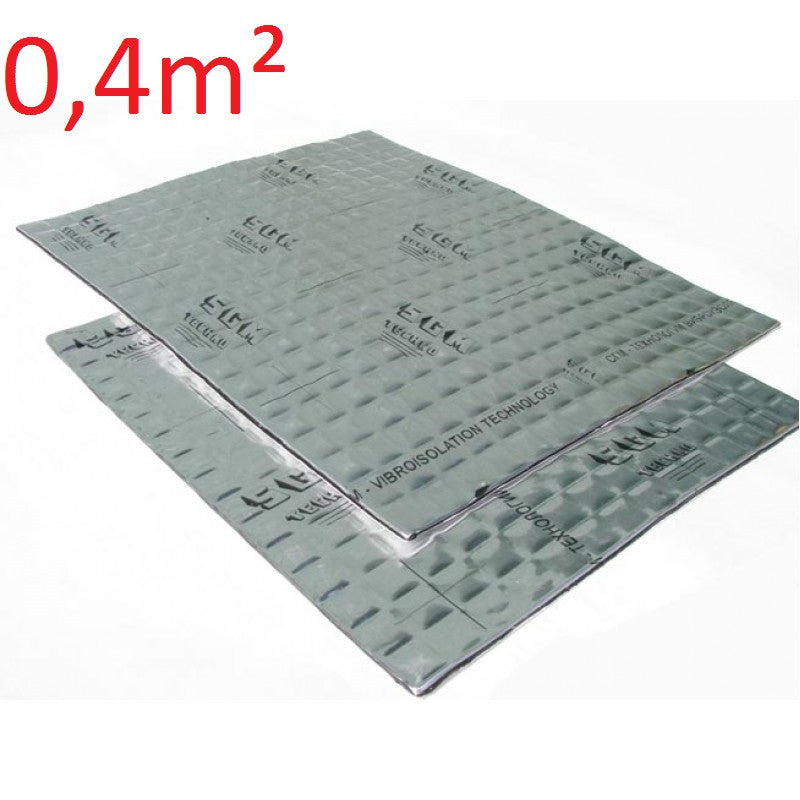The special production technology allows to produce a high-class product with stable and unchanging operational parameters.
The use of specially modified elastomer in the vibration isolation agent Alumast (M series) ensures a high coefficient of mechanical loss of the product, excellent adhesion to metal surfaces and a wide operating temperature range, from -45oC to +100oC.
This vibration insulation material is resistant to moisture, has sealing and anti-corrosion properties, the material does not need to be heated during installation.
Use: Car doors, roof, body sides, hood, trunk lid, engine-cabin partition from the cabin side.
The mechanical loss coefficient of the material is 0.24. What is it?
The body of the car resonates when driving or simply when the engine is working - it emits vibrations. Ideally, the body surface materials should absorb the vibration and convert it into thermal energy. The mechanical loss coefficient, MNK, shows how much vibrational energy is exchanged for heat. Driving comfort depends on it. If MNK is 1 - this is the maximum result, all the vibrational energy is replaced by heat. If MNK <1, the sound and vibration absorption properties of the material are worse. When choosing an insulating material, you should pay attention to this number. A higher number is better.
Why should you try soundproofing materials?
They ensure additional comfort during the trip. Less vibration is felt while driving, there are no squeaks caused by parts touching each other, and no extraneous noise from the street or the engine compartment. Talking in the car becomes easier, less tiring, nothing distracts attention while driving. Since these materials also act as a heat insulator, it is easier to start the engine in winter, and the interior freezes less. Almost the entire body of the car can be lined with insulating materials, thus ensuring the greatest effect.




